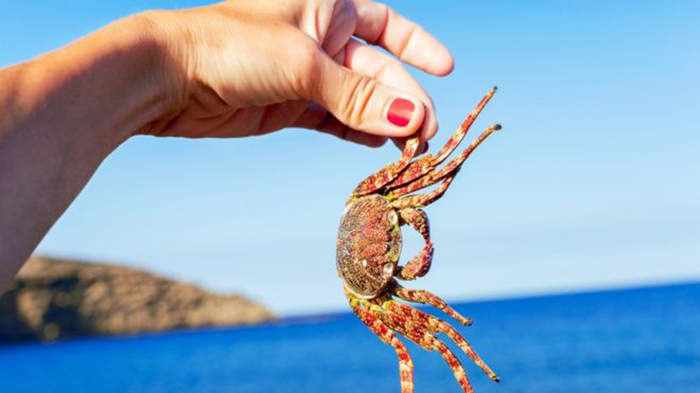Finding out whether that crabs feel pain is not as easy as it sounds. "It would be difficult for me to prove that [people] feel pain," says Robert Elwood, emeritus professor in animal behaviour from Queen`s University Belfast.
Pain is a subjective experience and is tricky to measure. Scientists are left with having to look at how animals react to stimuli.
Most animals have simple reflexes that move them away from things that could be harmful. This is what we do when we whisk our hands away without thinking after touching a hot plate. But a conscious experience of pain is something different. Researchers have tried to look at whether crabs can show behaviour beyond a simple reflex reaction.
Elwood`s work suggests that European shore crabs (Carcinus maenas) respond to electric shocks and then go on to avoid them. They like to hide during the day and would usually choose a shelter and stay there until it was safe to come out. But some crabs were given an electric shock in the first shelter they reached. This was repeated a second time and the experience changed their behaviour. These crabs were much more likely to switch shelters in subsequent trials than those who had not been shocked. They seemed to continue to avoid the shelter where they had been sparked.
Elwood`s team also found that some hermit crabs were willing to give up their shells if shocked inside them. The likelihood depended on the intensity of the shock but also how good the shell was. It took a bigger shock to persuade a crab to leave a better shell.
Earlier work also found that prawns may show pain behaviour that is more complex than a reflex reaction. They groom their antennae for extended periods of time after they have had acid rubbed on to them and do less grooming when local anaesthetic is applied beforehand.
"What I can say is that virtually all of the experiments that are conducted have been consistent with the idea of pain. And really that`s as far as you can take it. Whether they really feel pain and what is the nature of the pain is difficult to say," says Elwood.
But others remain unconvinced that animals with such simple nervous systems can actually suffer as more complex animals do. "I think it`s extremely unlikely that they feel pain," says Paul Hart, emeritus professor of biology at Leicester University. "I think it`s very clear that it`s never going to be demonstrated to everyone`s satisfaction whether an animal can or cannot feel pain. "
But in the end, it may not matter. Hart says it might be best to just treat animals in the best way possible. "There is no way of demonstrating scientifically that a fish or crab or even an ape can feel pain in the same way that we do," he says. But it might be worth giving them the "benefit of the doubt".
More about:















































